Residential heat pump installation Seattle WA: Best 2025
Why Seattle Homeowners Are Making the Switch to Heat Pumps
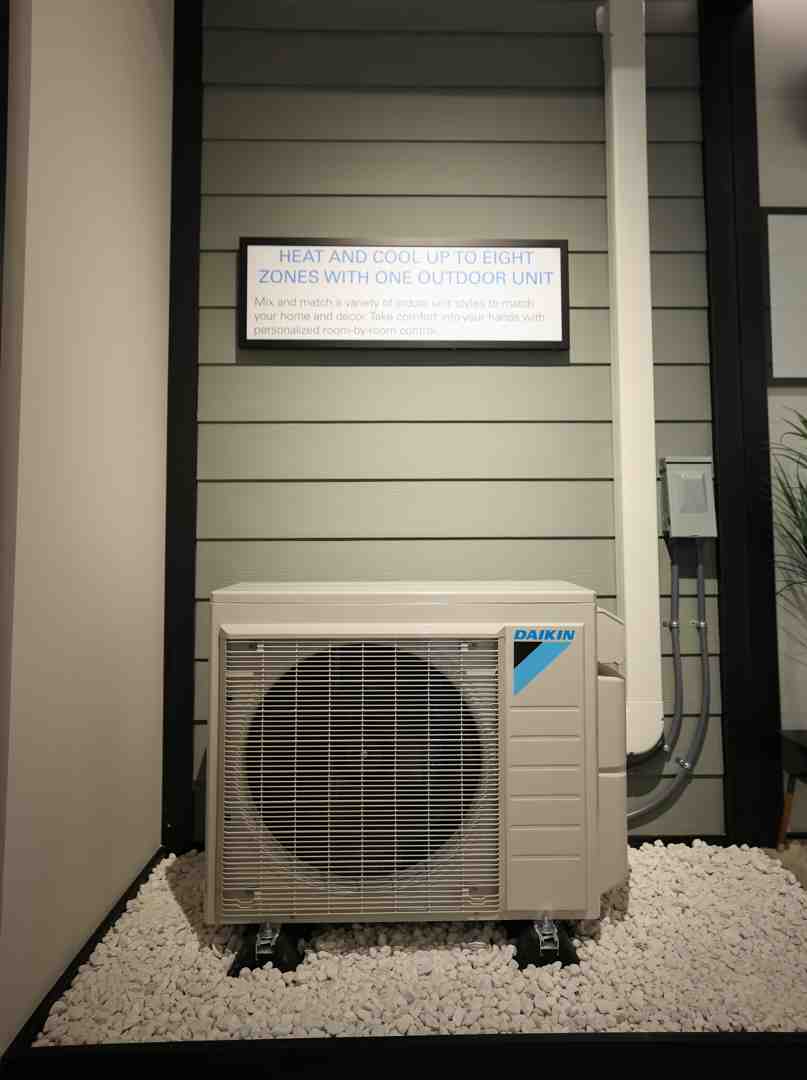
Residential heat pump installation seattle wa is changing how Pacific Northwest homeowners stay comfortable year-round. If you're looking for qualified installers in the Seattle area, here's what you need to know:
Top Heat Pump Installers in Seattle Should Offer:
- NATE certification and proper Washington state licensing
- Experience with both ducted and ductless systems
- Knowledge of local rebate programs (Seattle City Light, PSE)
- Manual J load calculations for proper sizing
- Post-installation support and maintenance plans
Seattle's mild winters and moderate summers create ideal conditions for heat pump technology. Unlike traditional furnaces that burn fuel, heat pumps transfer heat from outside air into your home during winter and reverse the process for cooling in summer. This single system handles both jobs while using up to 50% less electricity than conventional heating methods.
The challenge? Finding an installer who understands Seattle's unique climate, local building codes, and the rebate programs that can save you thousands. With an estimated 8,000-10,000 Seattle homes still using inefficient heating oil, and the city committed to transitioning all oil-heated homes by 2030, now is the time to explore your options.
Whether you're replacing an aging furnace, converting from oil heat, or looking to reduce your carbon footprint while lowering utility bills, the right heat pump installer makes all the difference. Learn more about energy-efficient heat pumps or contact a qualified installer to get started.
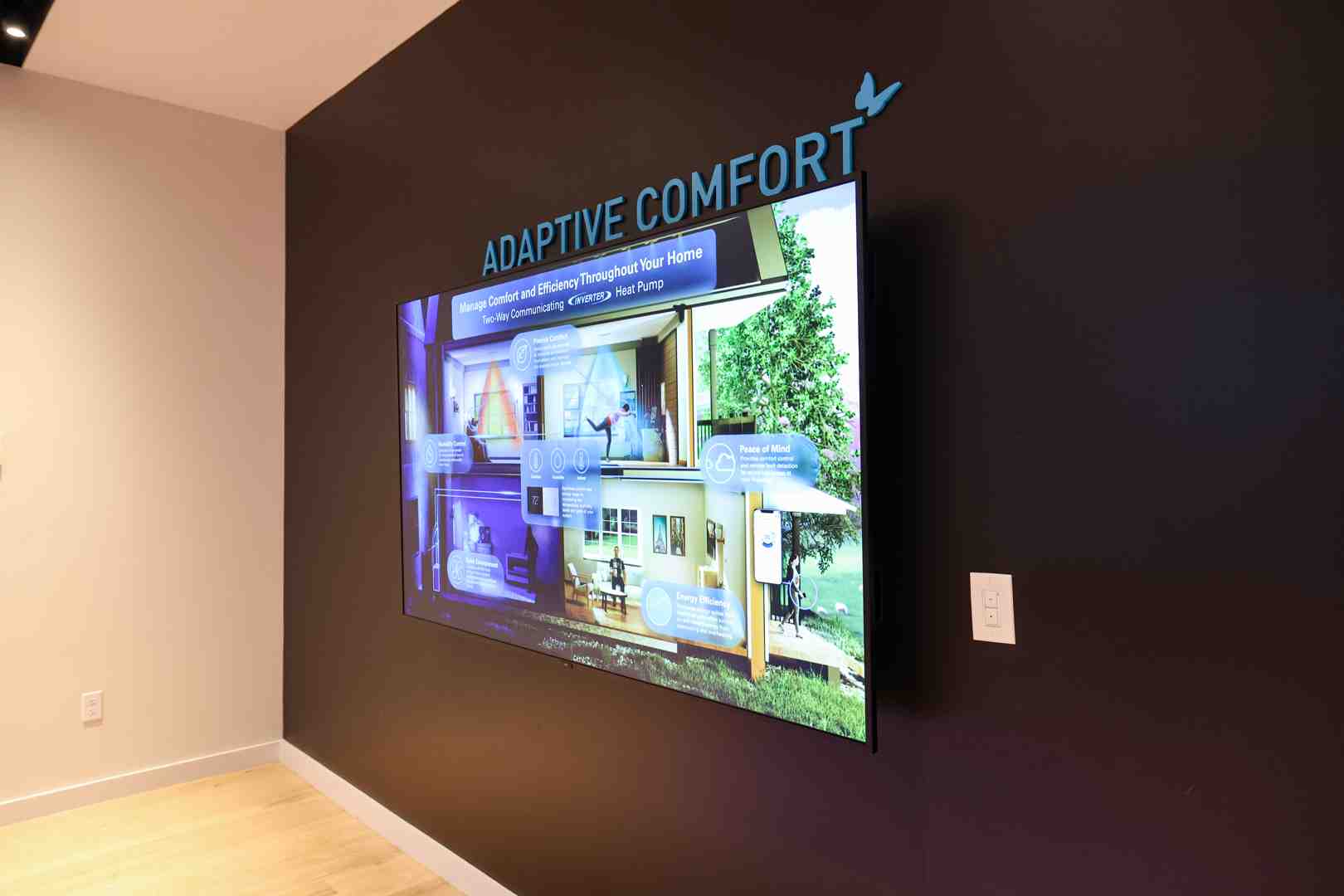
Why Heat Pumps are a Smart Choice for Seattle Homes
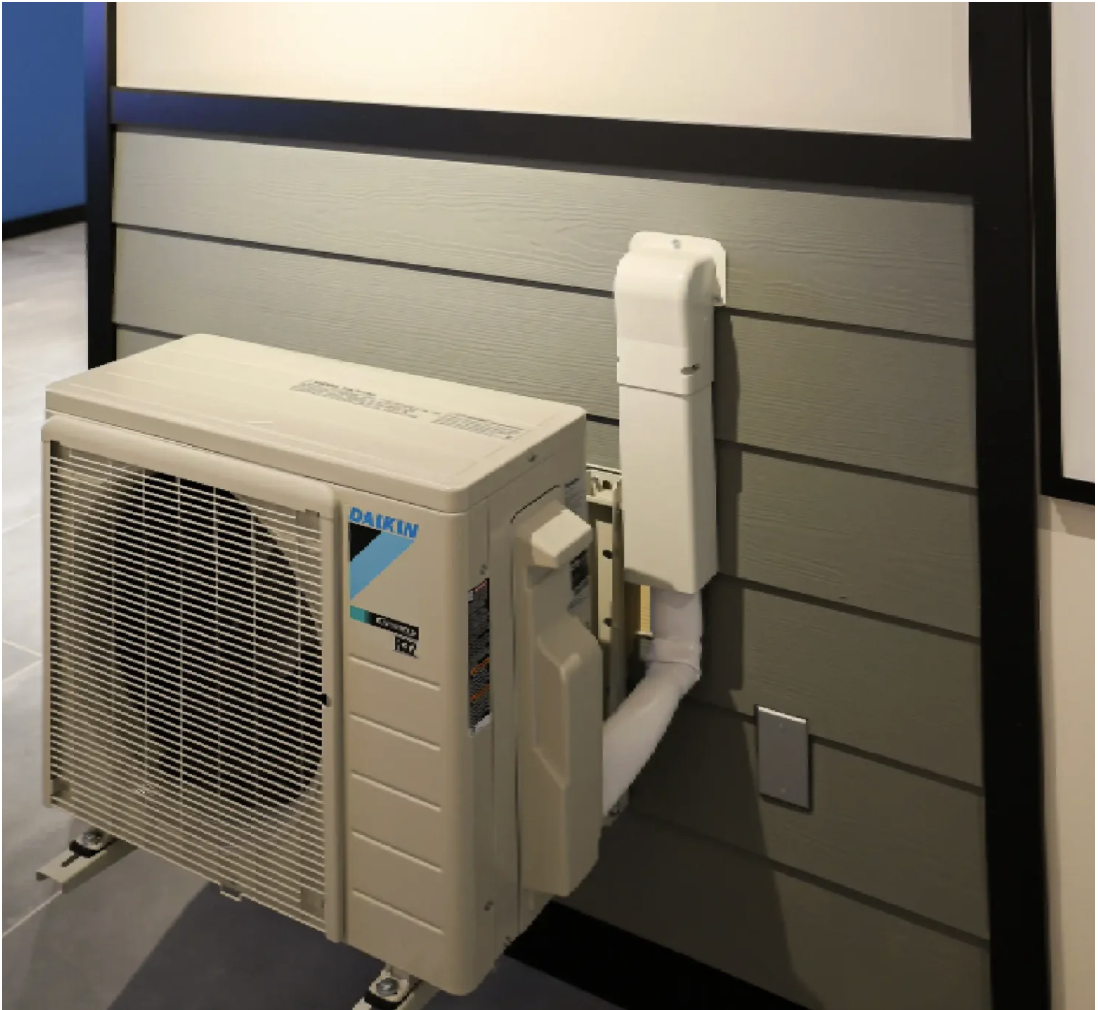
There's a reason more Seattle homeowners are choosing heat pumps for their homes. These versatile systems deliver year-round comfort while cutting energy costs and reducing your carbon footprint—all from a single, neat solution perfectly matched to our Pacific Northwest climate.
Seattle's mild climate creates the ideal environment for heat pump technology. Instead of burning fuel to generate heat, these systems simply move heat where you need it. In winter, they extract warmth from outside air and bring it indoors. In summer, they reverse the process to keep you cool. It's an all-in-one heating and cooling solution that handles both jobs beautifully.
The energy savings are impressive. Heat pumps use up to 50% less electricity than traditional electric furnaces and baseboard heaters. If you're currently heating with oil, the savings can be even more dramatic—some Seattle homeowners save thousands annually by making the switch. Your monthly utility bills could drop by 25-50% compared to conventional electric heating.
For our environmentally conscious city, heat pumps offer a reduced carbon footprint that matters. Since Seattle City Light's electricity comes from clean, carbon-neutral sources like hydropower, running your heat pump means you're heating and cooling your home without fossil fuels. It's a meaningful step toward a greener home and healthier community.
There's another benefit many homeowners don't expect: improved indoor air quality. Heat pumps continuously circulate and filter your home's air, removing allergens, dust, and other particles that can affect your family's health. To learn more about maximizing your system's efficiency, check out our guide on energy-efficient heat pumps.
How Heat Pumps Excel in the Pacific Northwest Climate
Our Seattle weather—with its damp winters, occasional cold snaps, and increasingly warm summers—might seem challenging, but heat pumps thrive in exactly these conditions.
During our mild winters, heat pumps shine by efficiently extracting heat from outdoor air even when it feels cold outside. Modern systems work remarkably well in Pacific Northwest temperatures, keeping your home cozy without constantly running expensive backup heat. This heat-transfer approach uses far less energy than traditional systems that generate heat from scratch.
Those famously damp days we experience throughout the year? Heat pumps help with that too. When operating in cooling mode, they naturally remove moisture from your indoor air through dehumidification. This makes your home feel more comfortable and helps combat that clammy feeling that can settle in during our wetter months.
And when summer arrives with those unexpected heatwaves we've been seeing more often, your heat pump provides reliable cooling to keep you comfortable. It's the same system, seamlessly switching between heating and cooling as the seasons change. For insights on systems designed specifically for our regional weather patterns, explore our information on Daikin cold climate heat pumps in Seattle.
The Benefits Beyond Temperature Control
The advantages of residential heat pump installation seattle wa extend well beyond temperature control. These systems improve your home in ways that might surprise you.
Quieter operation is one of the most appreciated benefits. Modern heat pumps run at around 50-60 decibels—about as loud as a normal conversation. Gone are the clanking, rumbling sounds of old furnaces cycling on and off. Both indoor and outdoor units are engineered for minimal noise, letting you enjoy peaceful comfort throughout your home.
The continuous air circulation provides improved air filtration that benefits your family's health. As your heat pump operates, it constantly filters the air moving through your home, capturing allergens, dust, and other airborne particles. This creates a cleaner, healthier indoor environment—especially important for anyone with allergies or respiratory sensitivities. Learn more about creating healthier indoor spaces through our indoor air quality solutions in Seattle.
Finally, investing in a high-efficiency heat pump can boost your home's value. As energy efficiency becomes increasingly important to homebuyers, a modern, eco-friendly heating and cooling system is a valuable upgrade that sets your property apart. It's an investment that pays dividends in comfort, savings, and resale appeal.
Understanding Your Heat Pump Options
Choosing the right heat pump for your Seattle home is a bit like finding the perfect pair of shoes – one size definitely doesn't fit all! When you're exploring residential heat pump installation seattle wa, you'll find that the best system for your home depends on several factors: your existing infrastructure, your home's layout, and how you like to stay comfortable throughout the year.
The good news? Whether your home has existing ductwork or not, there's a heat pump solution that's just right for you.
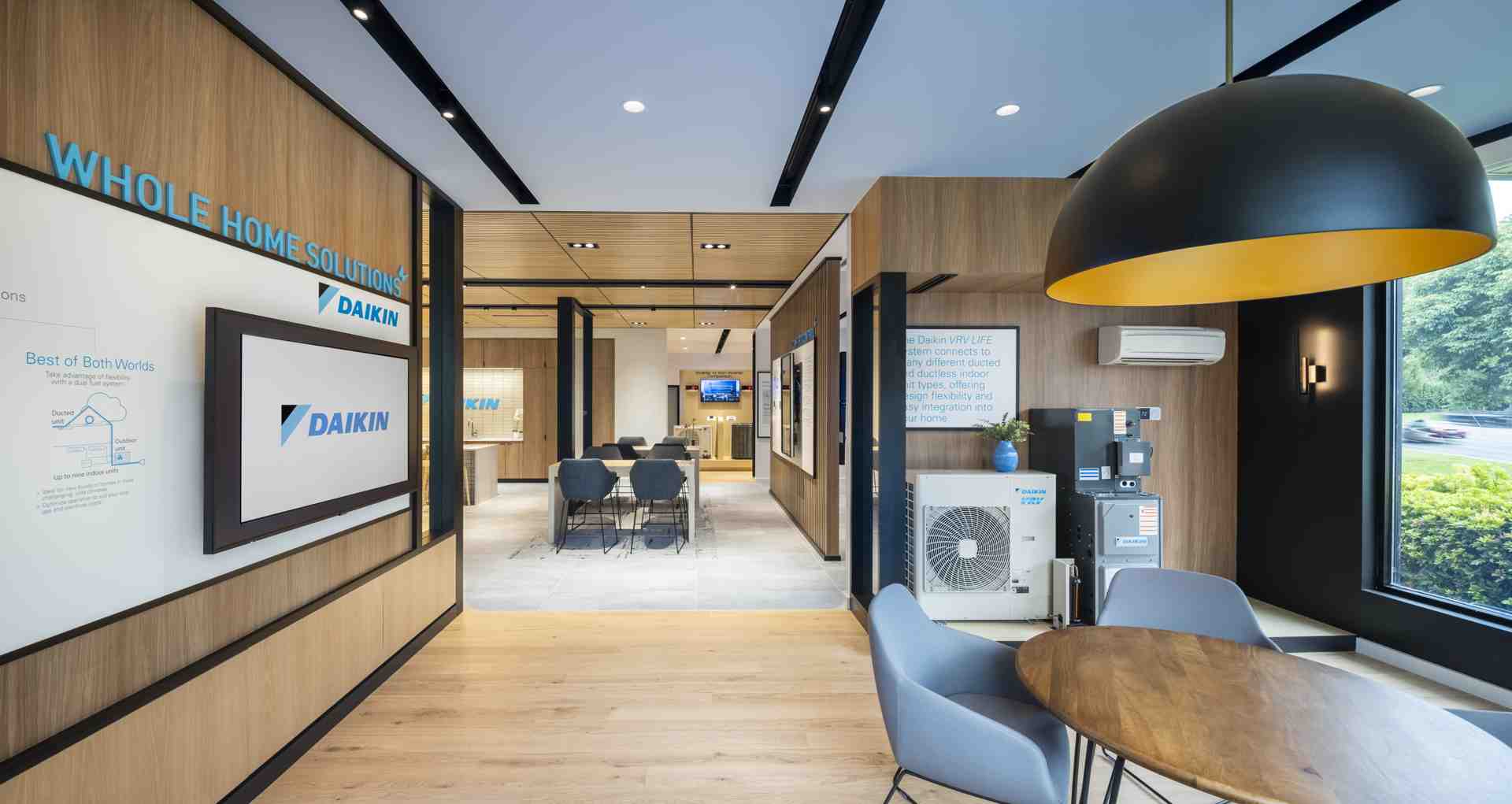
FeatureCentral (Ducted) Heat PumpDuctless (Mini-Split) Heat PumpBest ForHomes with existing ductwork; Whole-home heating/coolingHomes without ductwork; Additions; Zoned comfort; Supplemental heatingInstallationConnects to existing duct system; May require duct sealing/repairWall-mounted indoor units connected to an outdoor compressor; No ducts neededZoningTypically whole-home, though some advanced systems offer limited zoningExcellent for precise zone control with multiple indoor units
Central Heat Pump Systems
If your home already has ductwork from a traditional furnace or air conditioning system, a central heat pump can be a natural fit. These systems work with your existing ducts to deliver consistent, whole-home comfort to every room in your house. It's like upgrading the engine in your car while keeping the same body – you get better performance without starting from scratch.
The key to success with a central system is making sure your ductwork is up to the task. Leaky or improperly sized ducts can quietly steal your comfort and efficiency, so a thorough inspection is essential before installation. Think of it as making sure your home's circulatory system is healthy before asking it to do more work.
During your consultation, a qualified installer will conduct a comprehensive system compatibility check. They'll examine your duct condition, check for air leaks, and verify that everything is properly sized for optimal heat pump performance. This attention to detail ensures you'll enjoy efficient, even heating and cooling throughout your entire home. Learn more about creating consistent comfort in every room at Whole House HVAC Solutions Seattle.
Ductless Mini-Split Heat Pumps
What if your home doesn't have ductwork? Or what if you have that one room that's always too hot in summer and too cold in winter? That's where ductless mini-split heat pumps truly shine.
These clever systems consist of a compact outdoor unit connected to one or more sleek indoor units mounted on your walls. No ductwork needed, which means no tearing into walls or ceilings during installation. Each indoor unit operates independently, giving you incredible control over different zones in your home. Want your bedroom cool while keeping the living room warmer? Done. Need extra comfort in a converted garage or new addition? Perfect.
This zoned heating and cooling isn't just convenient – it's also remarkably efficient. You're only conditioning the spaces you're actually using, rather than heating or cooling empty rooms. Plus, ductless systems are ideal for supplementing existing systems in challenging areas that never quite feel comfortable.
The flexible installation options mean these systems can fit almost anywhere in your home without major renovations. Whether you're adding comfort to a home without ducts, creating the perfect temperature in a master suite, or finally making that sunroom usable year-round, ductless mini-splits offer a solution that adapts to your unique needs.
To explore the cutting-edge technologies that make these systems so efficient, visit HVAC Technologies Seattle. And if you'd like to see the full range of options available – from central to ductless and everything in between – check out our comprehensive guide to Daikin Heat Pump Models.
The Guide to Residential Heat Pump Installation Seattle WA
Choosing to upgrade your home with a heat pump is exciting, but let's be honest – the installation part can feel a bit overwhelming. Finding the right installer for your residential heat pump installation seattle wa project is absolutely crucial. Think of it this way: even the best heat pump in the world won't perform well if it's not installed correctly.
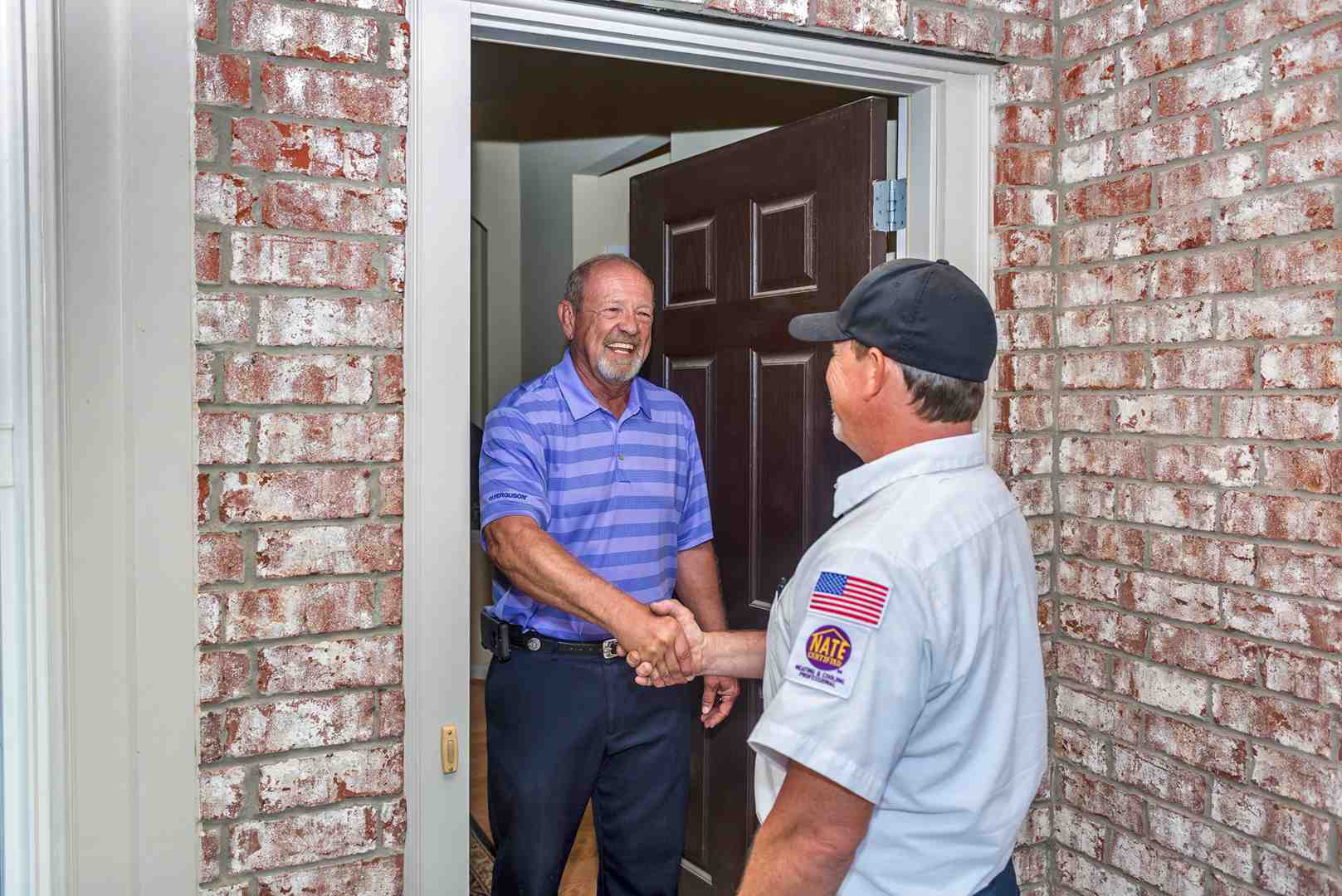
The first step? Do your homework. Start by vetting potential installers carefully. Check their credentials, read online reviews from real customers, and don't be shy about asking questions. We always recommend getting at least three bids. This isn't just about comparing prices – it's about understanding what each company offers, how they approach your specific situation, and whether they truly understand your needs.
Pay attention to how each installer communicates with you during the bidding process. Are they patient with your questions? Do they take time to explain things clearly? These early interactions often reveal how they'll treat you throughout the entire project. A heat pump installation is a significant investment in your home's comfort and efficiency, and the quality of installation directly impacts how well your system performs for years to come.
We're proud to be among the certified Daikin Dealers Seattle who understand that this investment deserves care, expertise, and genuine customer service.
Key Qualities of a Top-Tier Installer for residential heat pump installation seattle wa
What separates an exceptional installer from an average one? Several key qualities make all the difference when it comes to residential heat pump installation seattle wa.
Local expertise matters more than you might think. An installer who knows Seattle's unique climate patterns, understands our building codes, and has experience navigating city permit processes will save you time and potential headaches. They'll know how Seattle's damp springs affect equipment placement, or how to optimize performance during our increasingly warm summers.
Proper licensing and insurance should be at the top of your checklist. A reputable installer will happily provide proof of both. This protects you, your home, and everyone involved in the installation. Don't skip this step – it's your safety net.
Look for NATE certification when evaluating technicians. This nationally recognized credential means the technician has demonstrated comprehensive knowledge and hands-on expertise in HVAC systems. It's a mark of professionalism and competence. Similarly, ACCA membership (Air Conditioning Contractors of America) shows a commitment to following industry best practices and staying current with evolving standards.
Finally, a quality installer will have solid experience with local permits. Heat pump installations typically require city permits, and the process can be complex. An experienced contractor knows exactly what's needed, handles the paperwork efficiently, and ensures your installation meets all local regulations. No surprises, no delays.
For an even deeper dive into selecting the right professional for your project, our Heat Pump Installation Seattle Ultimate Guide covers everything you need to know.
Navigating the Installation Process
Once you've selected your installer, what actually happens? Understanding the installation process helps you know what to expect and feel confident every step of the way.
Everything starts with an initial consultation. This is where we really get to know you and your home. We'll discuss your comfort preferences, any problem areas in your house, your energy goals, and your budget considerations. It's a conversation, not a sales pitch. We want to understand what matters most to you.
Next comes the home assessment and load calculation. This is where the science comes in. A qualified installer will perform a detailed Manual J load calculation – essentially a mathematical analysis of your home's heating and cooling needs. We'll measure your home's square footage, evaluate your insulation, examine your windows, consider ceiling heights, and factor in everything that affects how your home gains and loses heat.
Why all this detail? Because proper sizing is absolutely critical. An undersized heat pump will run constantly and never quite keep up with your comfort needs. An oversized one will cycle on and off too frequently, wasting energy and wearing out components faster. Getting the sizing right means your system will run efficiently, last longer, and keep you comfortable year-round.
Based on this thorough assessment, we move to system design and selection. We'll recommend the specific heat pump model and configuration that best matches your home's needs and your priorities. Whether that's a central system working with your existing ducts or a ductless setup for targeted comfort, every recommendation is custom to you.
When installation day arrives, our professional technicians will work efficiently while respecting your home. We'll protect your floors and belongings, minimize disruption, and maintain a clean workspace. The installation typically takes one to three days, depending on the system complexity. Throughout the process, our team ensures every component is installed correctly, all connections are secure, and everything meets both manufacturer specifications and local building codes.
Finally, we'll conduct a thorough post-installation walkthrough with you. We'll show you how to operate your new system, explain its features, demonstrate the thermostat or remote controls, and answer all your questions. We want you to feel completely comfortable with your new heat pump from the moment we leave. This walkthrough is also when we'll discuss maintenance schedules and what to watch for as you get familiar with your system.
For a comprehensive overview of each step in detail, check out our Heat Pump Installation Seattle Complete Guide.
Maximizing Your Investment: Rebates and Maintenance
You've made the smart choice to invest in a heat pump! Now let's talk about making that investment work even harder for you – both by taking advantage of available financial incentives and ensuring your system delivers reliable comfort for many years to come.
Here in Western Washington, heat pumps typically provide 15 to 18 years of dependable service. That's nearly two decades of efficient heating and cooling! But here's the thing – that longevity isn't automatic. Like your car needs oil changes or your teeth need regular cleanings, your heat pump needs consistent care to perform at its best.
The really exciting news? There are substantial financial incentives available right now to help offset your initial investment. We're talking about federal tax credits, local utility rebates, and special programs that can save you thousands of dollars. These aren't small perks – they're meaningful opportunities to make your upgrade more affordable while doing something great for the environment. For a deeper dive into optimizing your system's performance, explore our Complete Heat Pump Efficiency Guide.
Understanding Available Incentives for residential heat pump installation seattle wa
The landscape of rebates and tax credits for residential heat pump installation seattle wa is genuinely impressive right now. Multiple programs at the federal, state, and local levels are designed to encourage homeowners to make the switch to efficient, electric heating and cooling. Let's break down what's available to you.
If you're a Seattle City Light customer, you have access to several valuable rebates. Their heat pump rebates range from $300 to $600 depending on your new air source heat pump's HSPF2 efficiency rating. They also offer a $750 rebate for heat pump water heaters, which are dramatically more efficient than traditional models. And here's a bonus – smart thermostat rebates are available if you have electric heating. Don't forget to ask your contractor about City Light discounts that might apply to your specific project! You can find complete details on the Seattle City Light website.
For those served by Puget Sound Energy, they offer their own set of rebates for energy-efficient home upgrades, including heat pumps. Visit the Puget Sound Energy website to see what qualifies for your home.
The federal government is offering a generous 30 percent tax credit for heat pump installation through 2032. However, there's an important deadline to know about – a specific $2,000 tax credit related to the Inflation Reduction Act is currently scheduled to end on December 31, 2025. Your heat pump needs to be installed before this date to qualify for that particular credit. Additionally, if your electrical panel needs upgrading to accommodate your new heat pump, there's a $600 federal tax credit available for that work. We always recommend consulting with a tax advisor to understand how these credits apply to your unique situation.
The Washington State Department of Commerce is administering Home Electrification and Appliance Rebates (HEAR) funded by the federal Inflation Reduction Act. These rebates for energy-efficient appliances like heat pumps will be available for income-qualified Washington households through the Washington State Department of Commerce programs.
If you're currently heating with oil, the Seattle Clean Heat Program offers an incredible opportunity. You can receive a $2,000 instant rebate when converting to a qualified heat pump system through a participating contractor. Moderate-income households (those earning 81%-150% of Area Median Income) may qualify for an additional $4,000 bonus rebate while funding lasts. For income-eligible Seattle households, no-cost conversions from oil furnaces to electric heat pumps are even available through the Seattle Office of Housing Clean Heat program.
Financing options are also available to help spread out your investment. Many lending institutions, including Puget Sound Cooperative Credit Union, provide specialized financing for energy-efficient upgrades. Many participating contractors offer their own financing programs as well, so it's worth asking during your consultation.
If you're converting from oil heat, the Washington State Pollution Liability Insurance Agency (PLIA) offers resources, including grants and loans, for addressing heating oil tank issues.
For even more comprehensive information on available incentives and tax credits, check out our partner resource, Switch Is On.
With this many programs available, working with an installer who truly understands the incentive landscape becomes incredibly valuable. They can help you steer which programs you qualify for and ensure you don't miss out on any savings.
Ensuring Longevity: Heat Pump Maintenance and Care
Your heat pump is designed to provide reliable comfort for 15 to 18 years, but reaching that full lifespan requires consistent care. Regular maintenance isn't just a nice-to-have – it's essential for keeping your system running efficiently, preventing unexpected breakdowns, and often fulfilling your manufacturer warranty requirements.
The cornerstone of good heat pump care is bi-annual professional service checks. We recommend scheduling these twice yearly – once in spring before cooling season kicks in, and again in fall before you need heating. During these visits, trained technicians will inspect all components, clean the coils, check refrigerant levels, and ensure everything operates as it should. Think of it as preventive medicine for your comfort system. These regular check-ups catch small issues before they become expensive problems and keep your system running at peak efficiency, which means lower energy bills.
Between professional visits, there are simple tasks you can handle yourself. The most important is regularly cleaning or replacing your air filters. Clogged filters force your heat pump to work harder, consuming more energy and potentially causing damage. We recommend checking your filters monthly and changing them as needed, especially during peak heating and cooling seasons. It takes just a few minutes and makes a real difference.
Your outdoor unit also needs attention. Keep the area around it clear of leaves, grass clippings, dirt, and overgrown vegetation. Your heat pump needs adequate airflow to operate efficiently, and a blocked unit has to work much harder to do its job. A quick visual check every few weeks and some occasional cleanup will keep things running smoothly.
Regular maintenance does more than just extend your heat pump's life – it maintains its efficiency, which translates directly into lower utility bills month after month. It's a small investment that pays dividends in comfort and savings. If you ever notice something seems off with your system, our Heat Pump Troubleshooting guide can help you identify common issues and know when to call for professional help.
Your Next Step to a More Comfortable Seattle Home
You've made it this far, which tells us you're serious about changing your Seattle home into a haven of year-round comfort. And honestly? That's exciting! We've explored why heat pumps are such a natural fit for our Pacific Northwest climate, walked through your options between ducted and ductless systems, and highlighted what makes a truly exceptional installer. We've even shown you how rebates and proper maintenance can maximize your investment for years to come.
Here's what it all comes down to: residential heat pump installation seattle wa isn't just about upgrading your heating and cooling system. It's about reclaiming control over your home's comfort while dramatically reducing your energy bills and carbon footprint. It's about those cozy winter evenings without the guilt of high utility costs, and those increasingly warm Seattle summers with reliable, efficient cooling at your fingertips.
But here's the thing – all the research in the world only gets you so far. The real magic happens when you partner with a professional installer who truly understands your home's unique needs. They'll conduct those crucial load calculations, steer the maze of local rebates and incentives on your behalf, and ensure your system is sized and installed perfectly. This expertise makes the difference between a heat pump that performs adequately and one that exceeds your expectations for the next 15-18 years.
We believe you deserve to experience the technology before making your decision. That's exactly why our Pacific Northwest Daikin Experience Center exists right here in Seattle. It's not a showroom where you just look at equipment – it's an interactive space where you can actually see heat pumps in action, hear how quietly they operate, and feel the quality of air they deliver. You can ask questions, touch the technology, and gain that personalized understanding that makes your decision feel confident and informed.
The path to a more comfortable, efficient, and environmentally friendly home is clearer than you might think. With Seattle's commitment to clean energy, the generous rebates available right now, and heat pump technology that's more advanced than ever, there's never been a better time to make the switch.
Ready to take that next step? We'd love to help you explore what's possible for your home. Visit our Heat Pump Solutions Seattle page to get started, or stop by our Experience Center to see the future of home comfort for yourself. Your perfectly comfortable Seattle home is waiting – let's make it happen together!
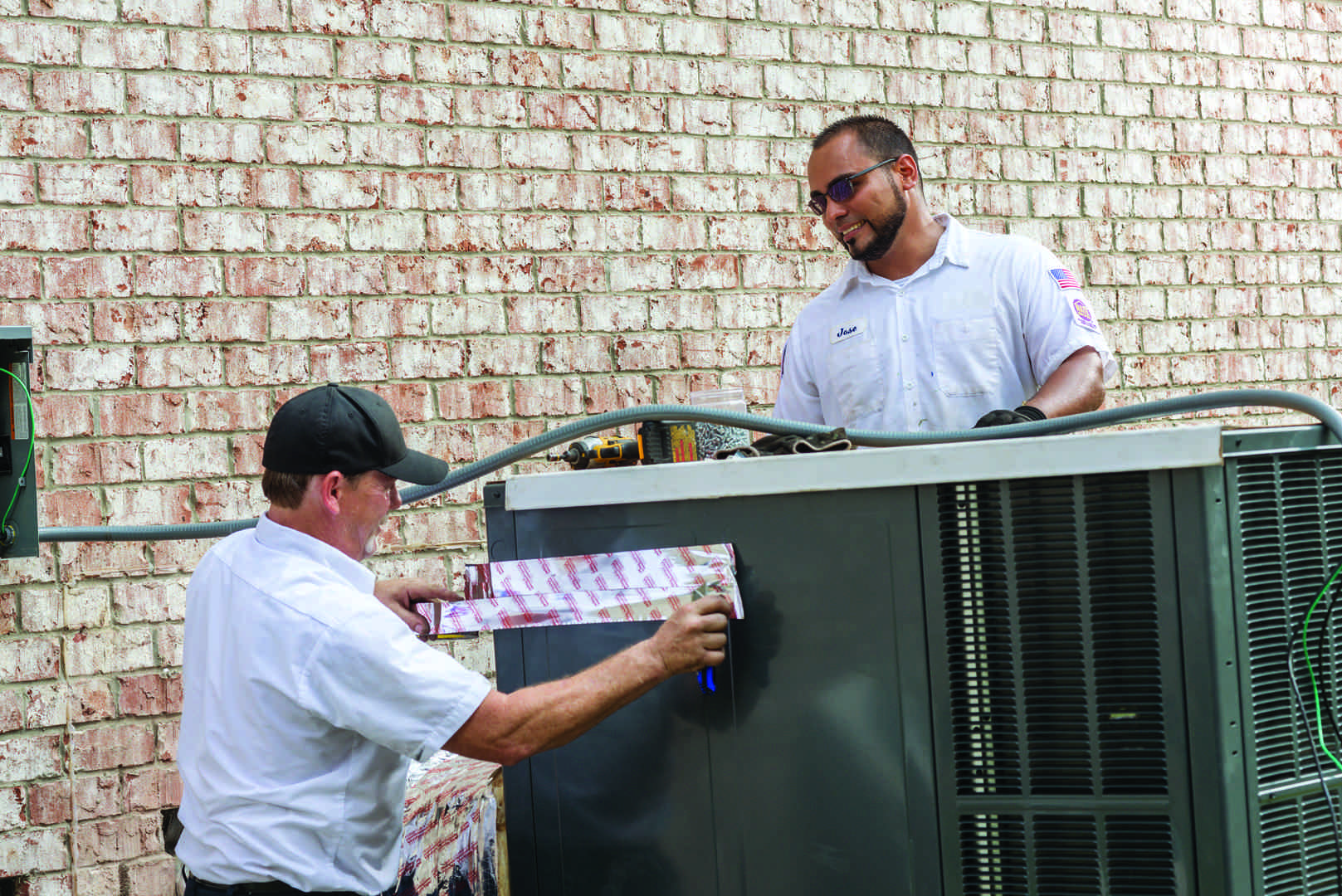
Schedule a Visit

your individual indoor comfort needs

products firsthand

with an authorized Daikin Dealer
.webp)

.webp)

.svg)
